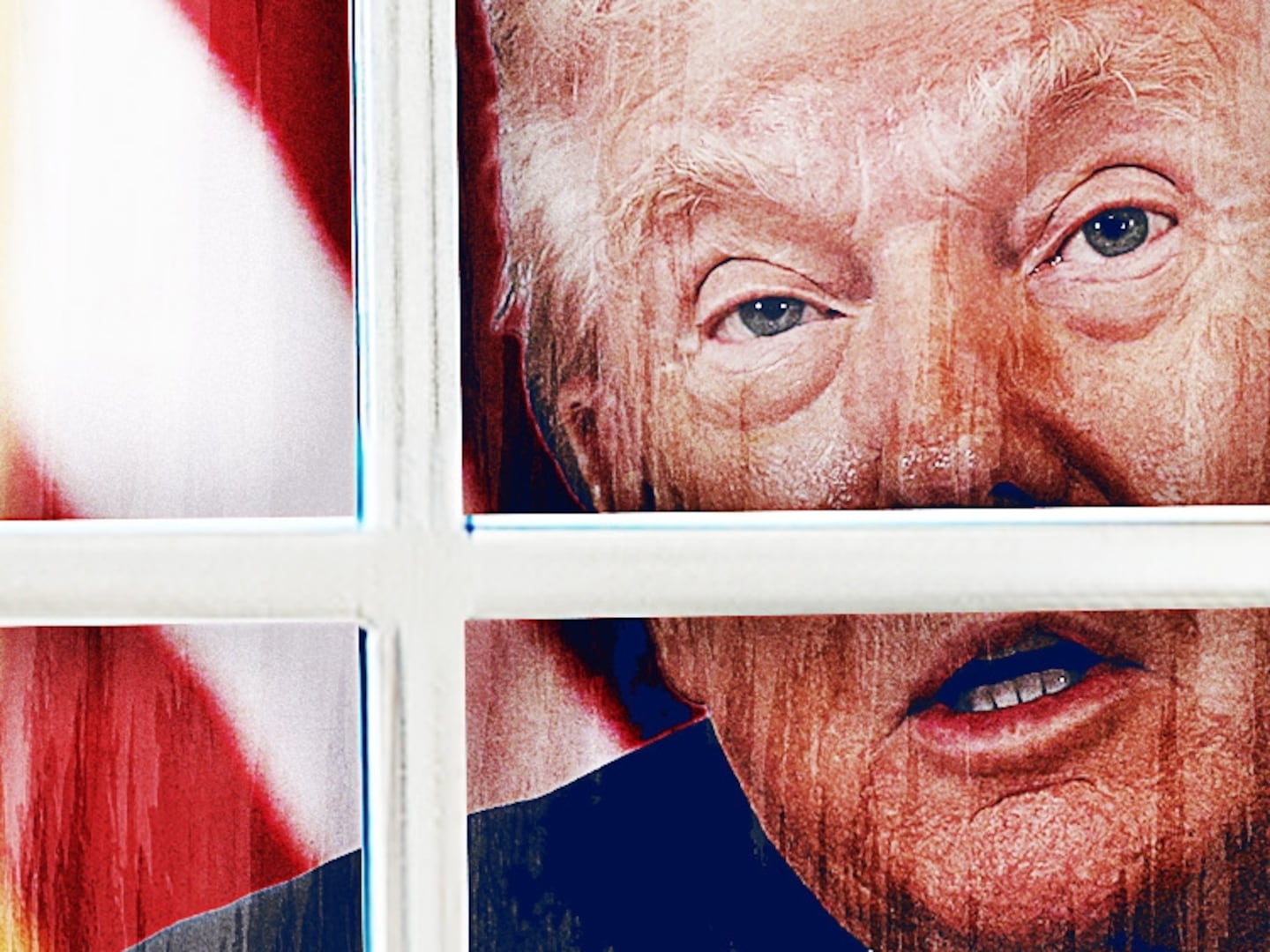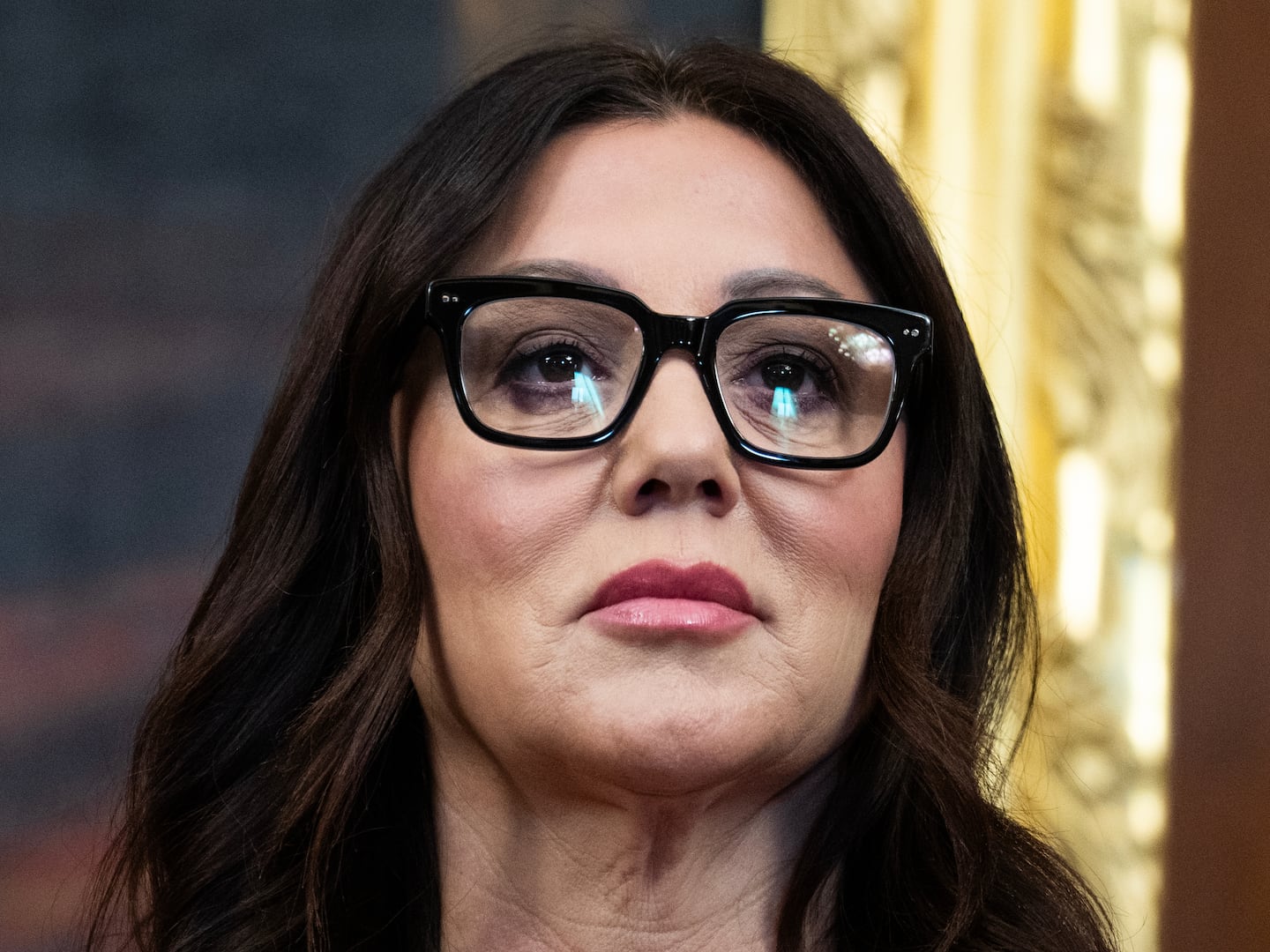The Roseanne reboot has been a big hit for ABC. With delayed viewing, the ratings reached 25 million viewers for last week’s premiere. The reincarnation, which now imagines Roseanne as a Trump voter, has received praise from conservatives, from liberals who get off on depictions of “both sides,” and even President Trump himself, who personally called Roseanne Barr to congratulate her on the ratings for her show.
He even tried claiming credit. During a speech in Ohio last week, Trump said to the gathered attendees, “Look at Roseanne! Look at her ratings! Over 18 million people—and it was about us! The fake news hasn’t quite figured it out … but they will.” In the wake of Roseanne's massive success, ABC has been quick to point out how this is the result of their "heartland strategy."
The president of Disney and ABC’s television group, Ben Sherwood, said to The New York Times, “We looked at each other and said, ‘There’s a lot about this country we need to learn a lot more about, here on the coasts. People gather round and they see themselves in this family, [and Roseanne] speaks to a large number of people in the country who don’t see themselves on television very often.”
Channing Dungey, president of ABC Entertainment, agreed and said, “We had spent a lot of time looking for diverse voices in terms of people of color and people from different religions and even people with a different perspective on gender. But we had not been thinking nearly enough about economic diversity and some of the other cultural divisions within our own country. That’s been something we’ve been really looking at with eyes open since that time.”
It's great that ABC wants to represent more people on their television screens, but the assumption that Roseanne is somehow representing the “voters who helped put Mr. Trump in office” is frankly ludicrous. New research suggests that the exit polling on the election was flawed in the first place and he never really had that many working-class white people with no college degrees voting for him.
There's also the idea that the “working class” in America is always described by default as white people, when there are myriad black and brown people in the working class.
ABC probably feels like it’s adequately representing the black experience in America, because of shows like Black-ish, How to Get Away with Murder, and Scandal. But these shows place black characters in high affluent lifestyles that aren't particularly enjoyed by all Americans.
The idea that only poor white people were stressed out during the 2016 election and continue to worry about finances is a myth that frothy New York Times op-eds and the Roseanne reboot continue to further. Racial inequality in America is such that black home ownership is still at 40 percent and the unemployment rate is at 7.5 percent, according to The Washington Post.
This would mean that shows like Black-ish are aspirational, and while they may represent black lives on the coasts, if ABC were to actually look inward to the “heartland” of America, it might want to start greenlighting some shows that depict the struggle of what it’s like to be a working-class minority in America. If Empire could snatch massive ratings, what could a black Roseanne garner?
The easy answer could be to reboot shows like Sanford and Son or Everybody Hates Chris, two very good shows that depicted working-class black families. It’s worked well for One Day at a Time on Netflix, which has rebooted the Norman Lear comedy with a Cuban family. The show has tackled racism, PTSD, sexuality, the economy, and health care—all the issues that affect the working class.
It might seem gauche, perhaps, for white executives to try and greenlight shows where the leads are lower-income black people. Perhaps they can only feel comfortable with affluent depictions of black lifestyles. But it’s absolutely necessary that we let all Americans see themselves, I mean, that’s the heartland strategy, yes?
Of course, that would require the media to focus as well on the people who are working class in America who didn’t turn out for Trump, minority and white ones—which is actually a majority of Americans. And the last time I checked, the electoral college didn’t log its Nielsen ratings.






